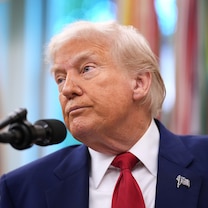100s of Radio Stations in Payola Probe
Feb. 9, 2006 — -- Hundreds of radio stations are under investigation by the Federal Communications Commission in the payola scandal rocking the music industry, ABC has learned.
"The FCC staff is working with voluminous evidence right now. It's a complicated and wide-ranging investigation." FCC Commissioner Jonathan Adelstein told ABC News in an exclusive interview.
"This is potentially the most widespread and flagrant violation of FCC rules in the history of American broadcasting," Adelstein said. "We've never seen evidence of such a systematic betrayal of the responsibility of broadcasters."
Payola -- or pay-for-play -- is a practice seemingly as old as the recording industry itself. In the past the money went to rogue disc jockeys in exchange for increasing the airplay for individual songs and driving those songs to the top of the charts. In the modern version, the money goes to the bottom line of the radio stations and the conglomerates that own them, according to New York Attorney General Eliot Spitzer.
"We have people in suits coming in with documents rather than cash payments under the table to a DJ," Spitzer told ABC News Chief Investigative Correspondent Brian Ross.
Several of the largest radio conglomerates in America -- the corporate owners of FM radio stations across the nation -- are within the scope of the FCC probe, which was triggered by the two year long pay-for-play investigation by Spitzer and was first reported on by ABC News.
A vigorous investigation by the FCC brings federal regulatory clout, and the specter of criminal prosecution by the Justice Department.
In addition to criminal prosecution, any broadcaster in clear violation could face severe sanctions, and in the most blatant cases, the loss of their broadcast licenses, officials involved in the investigation have told ABC.
"I can't believe that radio stations are putting their licenses at risk. It seems to me they thought the FCC was asleep and they shot someone in front of the policeman. The policeman is obligated to act when evidence is so clear," Adelstein said.





